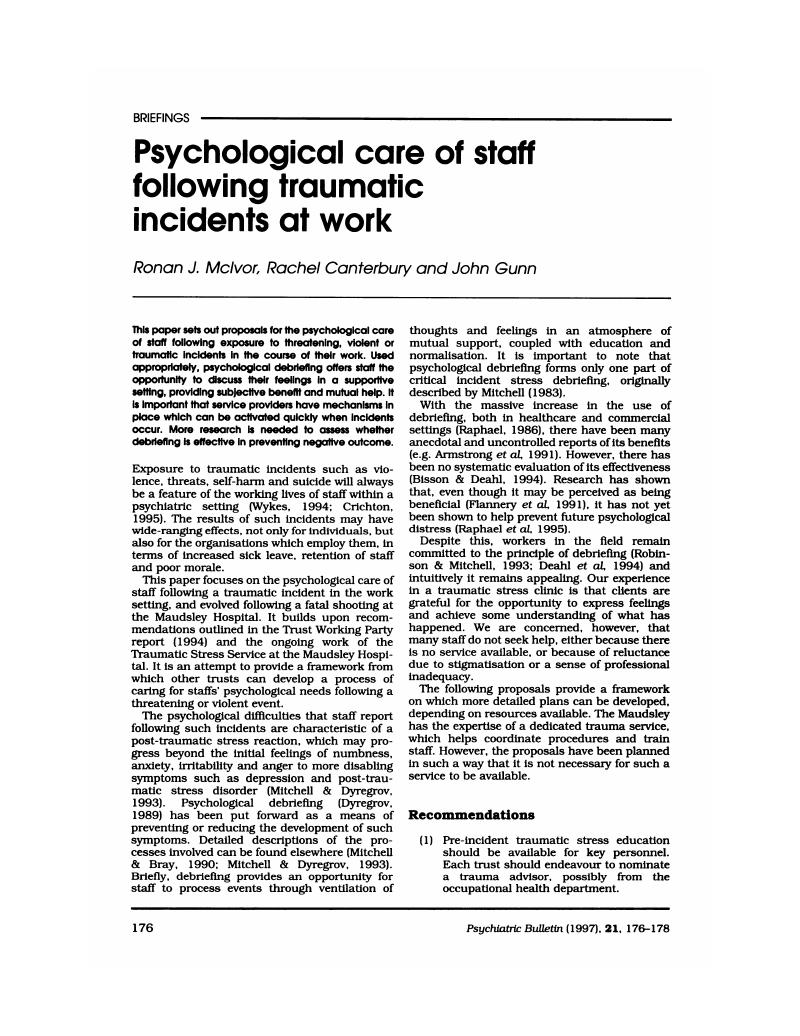Crossref Citations
This article has been cited by the following publications. This list is generated based on data provided by Crossref.
Michel, Konrad
1997.
After Suicide: Who Counsels the Therapist?.
Crisis,
Vol. 18,
Issue. 3,
p.
128.
Galloway, Jean
2002.
Personal safety when visiting patients in the community.
Advances in Psychiatric Treatment,
Vol. 8,
Issue. 3,
p.
214.
Adriaenssens, Jef
de Gucht, Veronique
and
Maes, Stan
2012.
The impact of traumatic events on emergency room nurses: Findings from a questionnaire survey.
International Journal of Nursing Studies,
Vol. 49,
Issue. 11,
p.
1411.




eLetters
No eLetters have been published for this article.